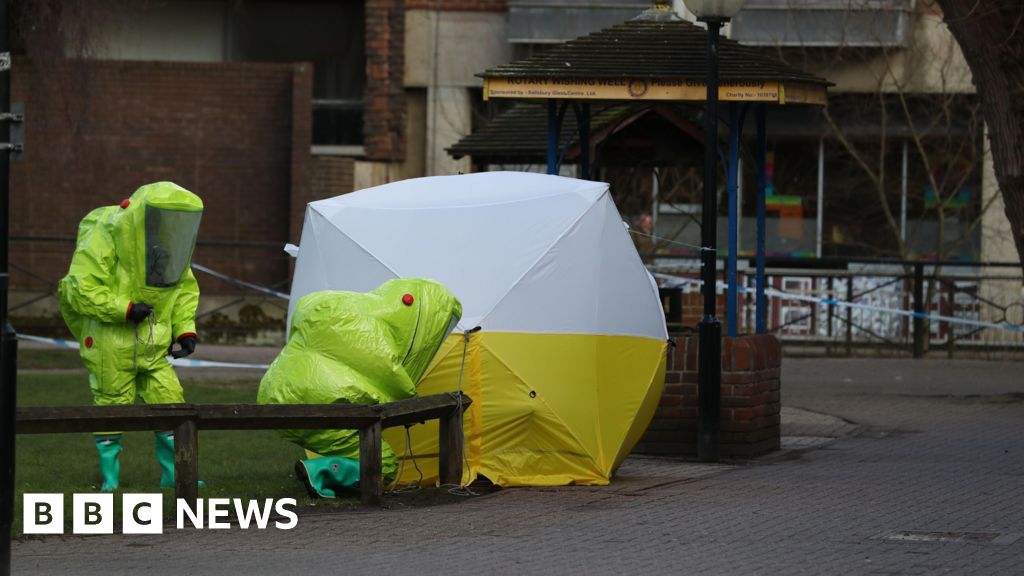In a bold response to escalating cyber threats, the United Kingdom has imposed stringent sanctions on multiple officers and units of the Russian military intelligence agency, the GRU. This decisive action
Did You Know
A day on Venus is longer than a year.
?
AD
reflects the government's commitment to safeguarding national security and countering Russia's sustained campaign of cyber warfare. Foreign Secretary David Lammy has articulated the growing menace posed by these operatives, emphasizing their role in instigating chaos and undermining the stability of European nations. The sanctions aim to signal to both domestic and international audiences that the UK will not tolerate foreign interference or hostile actions.
The UK's sanctions come on the heels of alarming revelations regarding a sophisticated digital espionage tool attributed to Russian hackers. This technology has been employed to target key governmental institutions, raising significant concerns about vulnerabilities in national security and the safety of British citizens. Lammy's assertion that these cyberattacks represent a direct threat to the UK underscores the urgency of the situation and the necessity for a robust defense strategy against foreign cyber intrusions. The move also illustrates the interconnected nature of modern security challenges, drawing attention to the need for global cooperation in addressing these issues.
This crackdown on Russian intelligence operations aligns with ongoing efforts in the international community to curb malfeasance from foreign adversaries. Many individuals sanctioned by the UK are also wanted in the United States, reinforcing the collaborative stance against international criminal networks. Moreover, the actions underline a broad strategy to bolster relationships with allied nations as the UK fortifies its defenses against a backdrop of geopolitical tension, particularly concerning the volatile situation in Ukraine. The proactive measures taken today not only seek to protect the UK but also aim to contribute to regional stability and security.
Q&A (Auto-generated by AI)
What are the implications of UK sanctions?
UK sanctions against Russian individuals and agencies aim to deter further cyberattacks and espionage activities. By targeting specific intelligence officers and military units, the UK sends a strong message of accountability and resistance against malicious activities that threaten national security and stability in Europe. These sanctions can also strain diplomatic relations and may lead to retaliatory measures from Russia, potentially escalating tensions further.
How do cyberattacks affect international relations?
Cyberattacks can significantly strain international relations by undermining trust between nations. They often lead to diplomatic disputes, economic sanctions, and military posturing. For instance, Russia's alleged cyber activities against the UK have prompted sanctions and heightened security measures. Such actions can create a cycle of retaliation, where affected nations respond with their own cyber defenses or sanctions, complicating diplomatic efforts and cooperation.
What is the role of the GRU in Russia?
The GRU, or Main Directorate of the General Staff of the Armed Forces of the Russian Federation, is Russia's military intelligence agency. It conducts intelligence operations, including cyber warfare, espionage, and special operations. The GRU has been implicated in various high-profile incidents, such as the poisoning of Sergei Skripal and interference in foreign elections, showcasing its role in advancing Russia's strategic interests globally.
How has the UK responded to past cyber threats?
The UK has responded to past cyber threats by enhancing its cybersecurity measures, forming alliances with other nations, and imposing sanctions on perpetrators. For example, following the 2016 election interference, the UK increased its cybersecurity funding and collaborated with NATO allies to bolster collective defense against cyber threats. This proactive stance aims to protect critical infrastructure and maintain national security against evolving cyber risks.
What are the historical ties between UK and Russia?
Historical ties between the UK and Russia have fluctuated between cooperation and conflict. In the 19th century, they were rivals in imperial expansion, particularly in Central Asia. During World War II, they allied against Nazi Germany. However, the Cold War marked a significant period of tension, characterized by espionage and ideological conflict. Recent years have seen renewed tensions due to issues like cyber warfare and geopolitical disputes, particularly regarding Ukraine.
















